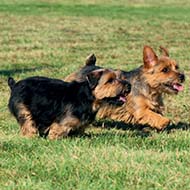
The resources have been created by the BSAVA.
BSAVA has put together a question and answer resource on puppy socialisation for veterinary professionals to use when advising clients.
Written in accessible language with clear answers to common questions asked by pet owners on the topic of puppy socialisation, the resource is accompanied by a resource with 10 'top tips' on puppy socialisation.
The Q&A resource provides information on puppy socialisation, whilst the top tips resource provides bitesized tips to guide pet owners on productive puppy socialisation.
BSAVA president Sheldon Middleton commented on the new resources: “We have seen a surge in puppy ownership during the pandemic when opportunities to meet up were limited, which may have resulted in some puppies missing out on the key socialisation period.
“This accessible guide gives invaluable support to our members when discussing socialisation with clients.”
Topics included in the Q&A resource include what socialisation is, when it should begin, and how to socialise a puppy in different environments.
Alongside the new resources for providing accessible information to pet owners on puppy socialisation, the BSAVA has also created a special collection on puppy socialisation.
Bringing together chapters, podcasts and leaflets on the reasons behind puppy socialisation and how to do it successfully, the special collection provides extra information to help veterinary professionals when advising puppy owners.
The Q&A resource is available to download here, and the 'Top 10 Tips' resource is available to download here.
Daniella Dos Santos, president of the BVA, commented on the importance of puppy socialisation: “We know that puppy socialisation is a very important part of a young dog’s development and long term welfare.
“This has been especially highlighted during the pandemic, when a surge in pet ownership at a time when socialisation opportunities were limited has led to vet concerns over longer-term behavioural challenges.
“Veterinary practices are well placed to provide pet owners with advice and information about how to socialise a puppy to both a home and an outdoor environment.”



 The Animal and Plant Health Agency (APHA) has updated its online reporting service for dead wild birds.
The Animal and Plant Health Agency (APHA) has updated its online reporting service for dead wild birds.